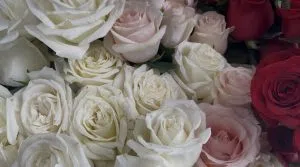Valentine’s Day is in full bloom at one London flower shop. The owner of Regency Flowers, Michael Gray, shared that it’s the busiest day of the year for his shop.
“By far, it’s the biggest day. Christmas and Mother’s Day are other big ones, but Valentine’s is the single busiest day,” added Gray.
The tradition of gifting flowers dates back thousands of years. Flowers have always been used in celebrations and ceremonies of every kind.
In the 19th century, flowers were used to express different messages and emotions. Different flowers stand for different things. Lilies are said to represent purity, while daisies symbolize innocence. Of course, roses represent love, making them a popular seller on Valentine’s Day.
“Roses are the biggest, then other coloured roses, and then some of the other smaller flowers,” said Gray of Regency’s best-selling Valentine’s flowers.
Roses’ association with love comes from ancient Greek and Roman mythology. The velvet-petalled flower was closely tied to the gods and goddesses of love.
The colours of roses also express different meanings. White roses symbolize purity, yellow represents friendship, pink conveys admiration, and red signifies deep love.
While this is the history behind gifting roses to your lover on Valentine’s Day, it seems some people might not even be sure why they are buying into the rose tradition.
“I have no idea, maybe… do they symbolize love?” shared Fanshawe student Noah Pateras when asked why buy roses.
Some students shared that receiving roses might be an outdated tradition.
“I feel like it’s the thought that counts. Roses are the safest bet, but I also think knowing your partner enough to get their favourite flower is important,” said student Alyssa Piotrowski.
However, steering away from tradition can be hard.
“A lot of people come in looking like deer in the headlights, trying to figure out what they want. Usually, we give advice based on who it’s for and what they’d like to say in the message,” concluded Gray.
For now, it seems flowers are still a Valentine’s Day staple.





